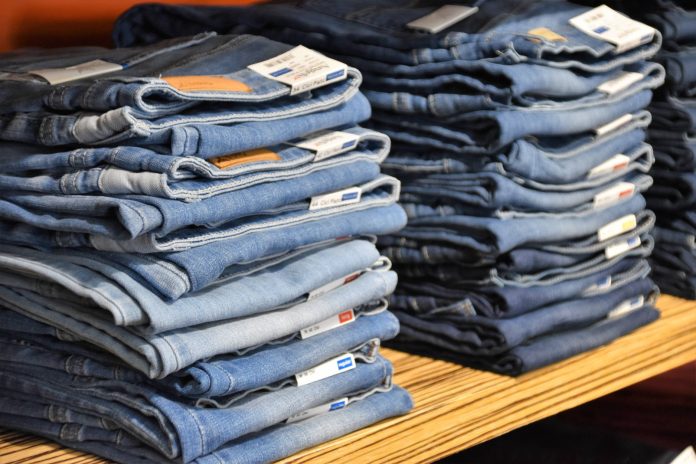As the fashion industry evolves, the Denim Manufacturer sector is witnessing significant changes driven by technology, sustainability, and shifting consumer preferences. Brands and manufacturers alike must stay ahead of these trends to remain competitive in the global market. In this article, we will explore the key trends shaping the denim manufacturing industry and what to expect in the coming year.
The Rise of Sustainable Practices in Denim Manufacturing
1. Eco-Friendly Materials
One of the most significant trends among Denim Manufacturers is the shift towards sustainability. More manufacturers are adopting eco-friendly materials, such as organic cotton, recycled denim, and plant-based dyes, in response to growing consumer demand for ethical fashion. These materials reduce environmental impact and appeal to environmentally conscious consumers.
Manufacturers are also focusing on reducing waste during production. By using recycled fibers and upcycling fabric scraps, Denim Manufacturers can minimize waste while producing high-quality denim that meets consumer expectations.
2. Water-Saving Technologies
Traditional denim production consumes large amounts of water, particularly during the dyeing and finishing processes. However, new water-saving technologies are being integrated into denim manufacturing to address this issue. Techniques such as ozone washing, laser treatment, and the use of waterless dyeing processes are expected to become more common in the coming year.
These innovations not only reduce water consumption but also minimize the use of harmful chemicals, making them a win-win for both manufacturers and the environment.
Technological Innovations in Denim Manufacturing
1. Automation and Robotics
Automation is revolutionizing the denim manufacturing process. From cutting fabric to sewing and finishing garments, robots and AI-powered machinery are being implemented to improve efficiency and precision. Denim Manufacturers are embracing these technologies to reduce production time, minimize human error, and enhance overall productivity.
Automation also enables manufacturers to scale up production more easily without sacrificing quality. As demand for denim continues to rise, the use of robotics in manufacturing will play a key role in meeting market needs.
2. 3D Sampling and Virtual Design
The use of 3D sampling and virtual design is another exciting trend in denim manufacturing. This technology allows designers to create and modify denim products digitally, reducing the need for physical samples. By using virtual prototypes, Denim Manufacturers can cut down on material waste and shorten production cycles.
Moreover, 3D design software enables manufacturers to experiment with different fits, washes, and styles without the costs associated with traditional sampling. This trend is expected to grow in popularity, making it easier for brands to innovate quickly and efficiently.
Customization and Personalization in Denim
1. Made-to-Order and Custom Fits
In the coming year, customization will be a major focus for Denim Manufacturers. More brands are offering made-to-order denim, allowing customers to choose specific details such as fit, color, and embellishments. This trend not only enhances customer satisfaction but also helps reduce overproduction, as manufacturers only produce what is ordered.
Personalization options, such as custom embroidery, patches, or distressed finishes, are also becoming more popular. By offering unique customization choices, Denim Manufacturers can cater to the growing demand for individualized fashion pieces.
2. On-Demand Production
On-demand production is gaining traction as a sustainable solution to fast fashion’s wasteful practices. Instead of producing large quantities of stock, Denim Manufacturers are adopting on-demand production models, where garments are only made once a customer places an order. This reduces excess inventory and cuts down on waste, making it an eco-friendly approach that aligns with consumer preferences for sustainability.
Sustainability Certifications and Ethical Practices
1. Sustainability Certifications
With increased scrutiny on environmental and ethical practices, many Denim Manufacturers are seeking sustainability certifications to enhance their credibility. Certifications such as Global Organic Textile Standard (GOTS), OEKO-TEX, and Better Cotton Initiative (BCI) ensure that denim is produced responsibly, from raw materials to finished products.
Consumers are becoming more informed about the impact of their purchases, and certifications help build trust between brands and their audience. In the coming year, more Denim Manufacturers will pursue these certifications to differentiate themselves in the competitive marketplace.
2. Fair Labor Practices
In addition to environmental sustainability, ethical labor practices are becoming a key focus for Denim Manufacturers. Consumers are increasingly aware of the importance of fair wages, safe working conditions, and humane treatment of workers. Manufacturers that prioritize ethical labor practices will stand out and attract socially conscious customers.
In the year ahead, expect to see more transparency from Denim Manufacturers about their labor practices, as well as partnerships with brands that share similar values regarding worker rights and fair compensation.
Circular Fashion and Recycling Initiatives
1. Closed-Loop Recycling
A growing trend in denim manufacturing is the implementation of closed-loop recycling systems. In these systems, post-consumer denim is collected, broken down, and re-spun into new fabric, creating a continuous cycle of reuse. This reduces the need for virgin materials and minimizes waste.
Many Denim Manufacturers are partnering with brands to offer recycling programs where customers can return their old jeans for recycling, encouraging a circular fashion economy. This trend is expected to gain momentum as both brands and consumers become more environmentally conscious.
2. Second-Hand and Vintage Denim
The popularity of second-hand and vintage denim is on the rise, driven by a shift towards sustainable and timeless fashion. Some Denim Manufacturers are tapping into this trend by offering reworked or upcycled denim, where old jeans are given a new life through creative alterations. Vintage-inspired designs and limited-edition collections made from repurposed denim are becoming highly sought after by fashion-forward consumers.
Conclusion
The denim manufacturing industry is poised for exciting changes in the coming year, with sustainability, technology, and customization taking center stage. Denim Manufacturers that embrace eco-friendly materials, water-saving technologies, automation, and ethical labor practices will be well-positioned for success.
By staying ahead of these trends, manufacturers can meet the growing demand for sustainable and innovative denim products. Whether through on-demand production, closed-loop recycling, or the use of cutting-edge technologies, the future of denim manufacturing is looking both eco-friendly and customer-focused. Brands that partner with forward-thinking Denim Manufacturers will not only enhance their product offerings but also contribute to a more sustainable fashion industry.
4o






